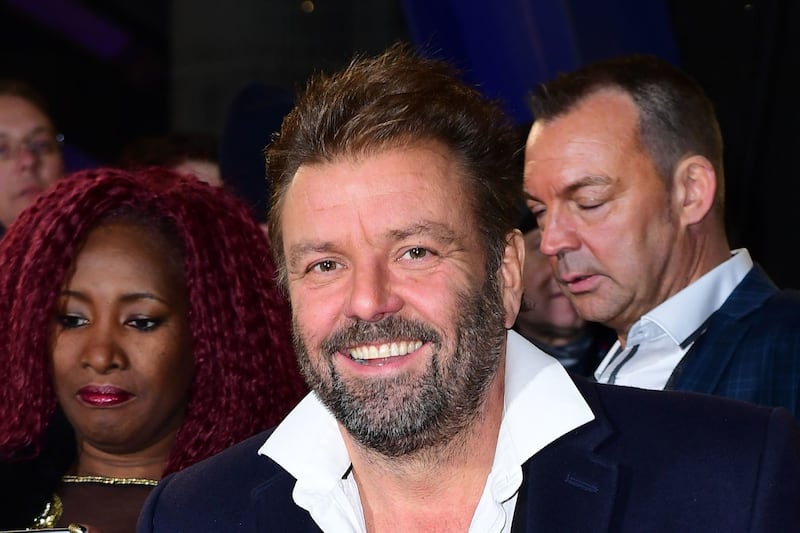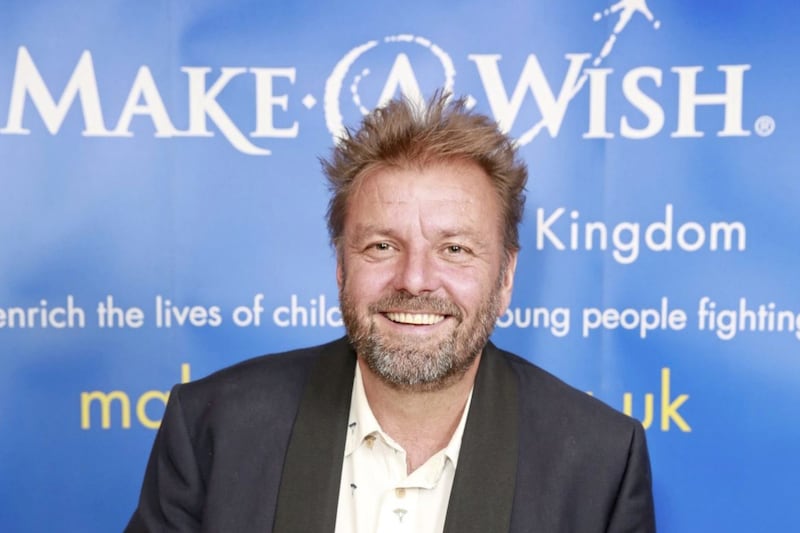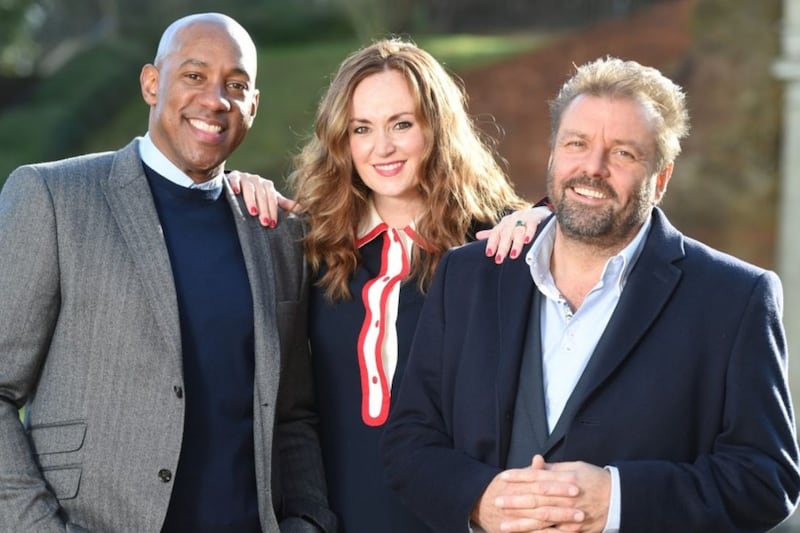MARTIN Roberts has spent 17 years at the helm of Homes Under The Hammer, charming viewers and guest homeowners alike with his astute insight, genial manner and catchphrase, ‘It’s unusual, but I like it’.
He’s moonlighted as a property expert on various shows down the years, and others may know him from his 2016 turn on I’m A Celebrity… Get Me Out of Here!
The 57-year-old also writes children’s books, most notably the Villes series (Boredsville, Coldsville, Windyville…). Sadsville, written in support of the NSPCC, sets out to talk to children on their own level about emotions – and when the pandemic hit, Roberts donated copies to every primary school in the UK.
Here, he talks to us about the story, parenting during the pandemic, and communicating with children about serious topics…
:: What’s the story behind Sadsville?
“I’ve been a supporter of the NSPCC since childhood, as my mum volunteered for them, and I’ve done a lot of charity projects for them. I thought there might be a way to write a book – nothing too emotional or heavyweight – that starts a conversation about children’s wellbeing at the age when they’re starting to come to terms with their emotions.
“In Sadsville, everyone is sad, but like all the lands [in the series] the reason is silly and the book is filled with whimsical pictures. At the back, there’s a section outlining what to do if you feel sad, and how to separate ‘good sad’, which is sadness that is normal in life, from ‘bad sad’ that comes from being bullied, neglected or abused.
“The idea originally was to give a copy to every Year 4 pupil in the UK, but when Covid came along there were reports that primary school children were really struggling, so I thought we should get something out there now. We raised enough money to give free copies to every UK primary school, with a lesson plan for teachers to check if children in their classes are struggling.”
:: Do you think these issues require a very light touch?
“For kids to open up, it has to seem informal. You can’t just say, ‘Right, today we’re going to talk about abuse’. Instead if you ask, ‘Why might people be sad?’, and if they say, ‘Maybe their mummy doesn’t give them enough breakfast’, you can make a mental note.
“We recently released a version read by 22 different celebrities, ranging from David Hasselhoff to Alexander Armstrong, all held together by Basil Brush. Children can sit in class and be engaged by a fun story read by Basil Brush, which leads into a proper conversation.”
:: How much of an influence did your own children have?
“I tried it out on them; they’ve been guinea pigs for all the Ville books. We talked through what sadness means to them and whether the language felt right. They have been very resilient but there have definitely been days when you can see they’re thinking, ‘What on Earth is going on?'”
:: Has writing the book changed your own parenting?
“Yeah, I think so. We have a lot more grown-up conversations with the kids than we might otherwise have done, and it makes you appreciate what you’ve got. My children have a pretty nice life, and when I do readings we generally go to schools in deprived areas with a history of children in care. I’m happy my children have what they do, and if I can bring a bit of that to others, that would be the thing I’m most proud of in my career.”
:: Even pre-pandemic, children’s mental health was a concern. Why do you think that is?
“Some of the things my kids have to deal with are issues my generation never had to worry about. I think a lot of it is down to social media, and the fact they’re forced to develop a lot quicker emotionally. If they haven’t got an iPad or whatever by the time they’re 10, they’re probably missing out chatting with their friends, but that also opens up so much stuff online.
“Kids are very perceptive, and they see a world around them that isn’t being looked after. They see rainforests being burned down on TV, and there’s all this disruption for young minds that basically just want to be happy.”
:: Was your own childhood an inspiration for the project?
“I was badly bullied for four of five years at a fairly nice school, and I didn’t tell my parents because I was an only child and they would have been really upset about it. I shouldered it myself because Childline didn’t exist, and I didn’t feel I had anyone to turn to.
“At that age, you do think, ‘This is how it is’, and only when you look back do you think, ‘No, it shouldn’t have been like that’. You should not be unable to sleep at night worrying about who’s going to beat you up the next day. That was just my life – it obviously wasn’t nice, but I didn’t know it was ‘wrong’.”
:: How have you been finding lockdown?
“Like most people, my world came crashing down. Homes Under The Hammer stopped filming in March. I do property training courses, and they stopped. We were also renting holiday homes, and that all stopped. Financially, it was tough, because I’m self-employed.
“I tried very hard to fill my time because I’m a creative person and need to keep things moving, so I worked very hard on my YouTube channel. I built stuff with my kids and gave property buying advice – all filmed in my back garden.”
:: Has DIY been a big part of your lockdowns?
“Yes. First it was the stuff you never get round to, like the dripping tap, then more elaborate projects. I’m a big shed fan – you can never have enough sheds. My wife was baffled!”
:: Did you miss filming Homes Under The Hammer?
“I’ve been on it since the start, nearly 18 years. We’ve done 25 series and they all roll into each other, because you have to wait six or nine months for a property to develop. I’ve been filming it pretty much constantly for 17 years.
“They did find a way to start filming again, but it’s now just me and a cameraman, where it used to be a team of five. I’ve been doing it so long that I don’t think viewers will notice, but it’s much slower. We can only do one property a day, but we’re managing and it’s been commissioned for another series. I’m aiming for 20 years.”
:: How proud are you of helming it for so long?
“Really proud – it’s such a loved show, and I’m always so touched by the nice things people say about it. A couple of years ago, we heard that when she’s in this country, Meryl Streep likes watching it, then in an interview at a junket we discovered Mark Wahlberg was a fan, and last week Sir Paul McCartney revealed he watches it in the gym. That was so cool.”
:: Martin Roberts recently provided every primary school in the UK with a teaching version of his children’s book Sadsville. For more information, see sadsville.co.uk







